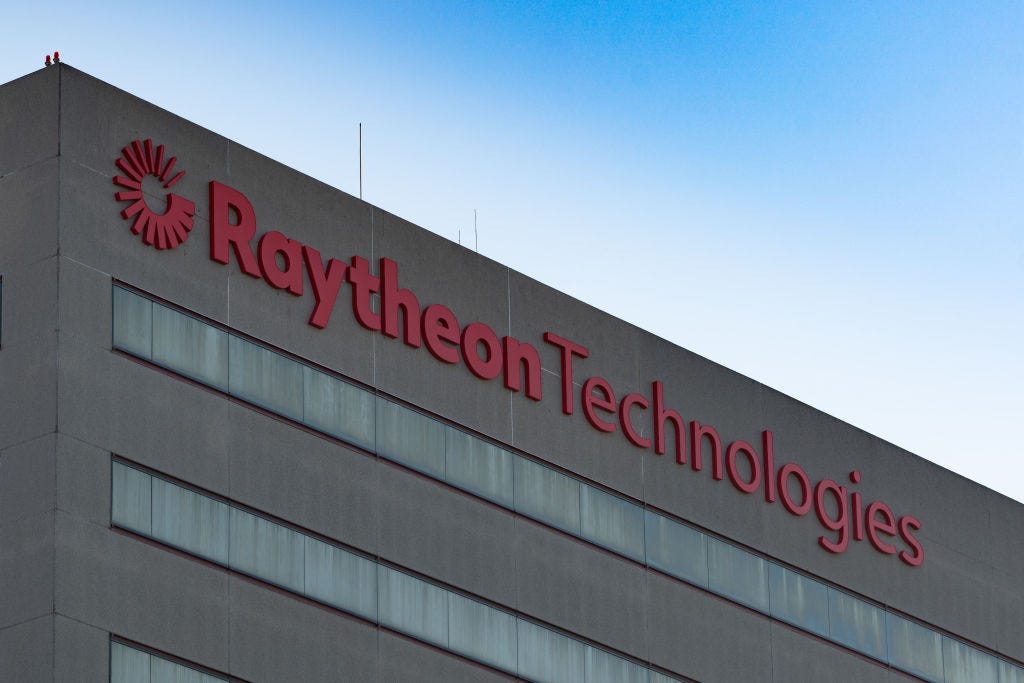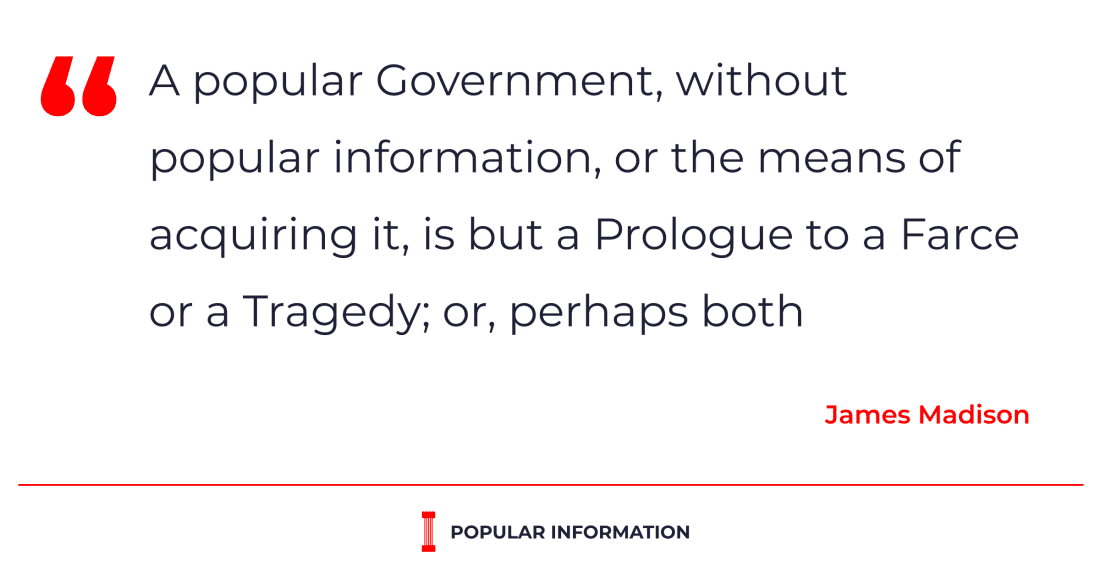President-elect Biden will take office in 62 days. On Tuesday, the transition announced that Biden and Vice President-elect Harris participated in a "Briefing with National Security Experts." According to the press release, the group briefed Biden and Harris "on the diplomatic, defense, and intelligence challenges the administration will inherit on day one, focusing on both the strategic landscape as well as the readiness of our foreign policy and national security departments and agencies."
Who was invited? The intimate gathering of 13 people included two board members from Raytheon Technologies (Raytheon), the world's second-largest defense contractor. The company was formed in April 2020 from a merger of Raytheon Company with United Technologies Corporation.
Robert Work and General Lloyd Austin, two Defense Department veterans who briefed Biden and Harris, currently serve on Raytheon's board. According to the most recent proxy statements filed by Raytheon's predecessor company, board members receive over $300,000 annually from the company, including at least $186,000 in deferred stock.
As board members, Work and Austin have a fiduciary duty to act in Raytheon's best interest. And as stockholders, they have a financial interest in making Raytheon as profitable as possible. For Raytheon, that means large U.S. military budgets.
In a CNBC interview in late-October, Raytheon CEO Gregory Hayes said it was "ridiculous" to think that Biden would reduce military spending. Although Hayes said he expected defense budgets to remain relatively flat as the country deals with the pandemic, he called for increased budgets in the longterm. "We have lost our technological edge to the Chinese and in some cases to the Russians and we’re going to have to invest more dollars into some of these new technologies if we’re going to be able to compete with these new threats," Hayes said.
Raytheon is reportedly "counting on its defense division to offset severe disruption in its jet engine and aircraft parts divisions, which have been hit hard by the slowdown in commercial air travel."
This fiscal year, the U.S. military budget is $738 billion, up sharply from $611 billion in 2016. Raytheon's CEO says further increases are needed to keep pace with China. But China's military budget in 2020, which is the second-largest in the world, was just $178.6 billion.
The Biden-Harris Transition Team released an ethics plan that governs the work of the transition. According to the plan, "Transition team members may not participate in any particular Transition matter that they know may directly conflict with a financial interest of the member, an immediate family member, partner, client or other individual or organization with which the member has or has had a business relationship within the past 12 months." In this case, Work and Austin have both a personal and professional financial interest in the future of U.S. national security policy.
The decision to include them anyway drew criticism from Jeff Hauser, the director of The Revolving Door Project, a watchdog group. "Biden was often an opponent of the hawkish Obama Administration figures most associated with the military-industrial complex while serving as Vice President... It is disappointing, however, that Biden is not taking the next step and shaking up the typical bipartisan pattern of empowering arms manufacturers seeking to influence public policy," Hauser told Popular Information.
The Biden-Harris transition did not respond to a request for comment.
Raytheon spends millions to lobby the federal government
Raytheon board members were able to get an audience with Biden and Harris for free. But the company spends millions to influence the federal government. In the third quarter of 2020, Raytheon’s lobbying expenditures exceeded $2.85 million. This included $680,000 in payments to 19 different lobbying firms. According to lobbying disclosures, these firms helped Raytheon lobby on “defense, international, civil and federal policy matters,” including “corporate tax reform,” “foreign military sales,” and “missile defense systems.” Raytheon spent another $2.1 million on its in-house lobbyists.
But Raytheon doesn’t solely rely on lobbying to influence policy – a revolving door has long existed between the federal government and the defense contractor. Former defense secretary Mark Esper spent years as Raytheon’s main lobbyist and Vice President of Government Relations before being appointed by Trump. Before that, William Lynn, formerly one of Raytheon’s top lobbyists, served as Deputy Secretary of Defense under Obama.
Robert Work keeps busy
In his role briefing Biden on national security policy, Work's conflicts extend well beyond Raytheon. Work is also the Chairman of the Board for Govini, a company that specializes in "machine learning and data science for national security clients." Its website says the company is "partnering with DoD and other national security departments" and "leveraging advances in machine learning and artificial intelligence."
Work has not shied away from advocating for Govini's interests in the press. In August, he said that Trump's proposed $2.5 billion in military spending for AI and autonomous systems projects was insufficient. "That's not a lot of money in the big scheme of things when you have a $740 billion budget, and you've got about $2.5 billion in a given year on these technologies. I would like to see that go up by at least an order of magnitude," Work said.
Work also echoed Raytheon's claims about the alleged technical superiority of China. "China appears to be driving the military-technical competition in critical areas such as quantum science, biotechnology, hypersonics, and ballistic and cruise missiles," Work told The Economist in April. Ballistic and missile technology are large components of Raytheon's work.
The WestExec connect
Work is also a principal with WestExec Advisers, a strategic consultancy with extensive connections to the defense industry and Biden's transition team. Founded in 2016, WestExec boasts of having broad and “unmatched networks” in national security and foreign policy. The firm works with a wide range of corporate clients and employs several former national security leaders that are expected to play prominent roles in Biden’s administration.
The American Prospect reported this summer that one WestExec client was "defense prime," which refers to the top five defense firms. WestExec would not confirm or deny whether Raytheon specifically was a client.
Antony Blinken and Michèle Flournoy, two of WestExec co-founders, are contenders for cabinet positions under the Biden administration — Flournoy for Defense Secretary and Blinken for Secretary of State. Blinken, who is on leave from the firm, attended Tuesday's national security briefing. According to the New York Times, Blinken has been running "the Biden campaign’s foreign policy operation" since April. Several other WestExec staffers are on leave from the firm to work on the Biden transition.



